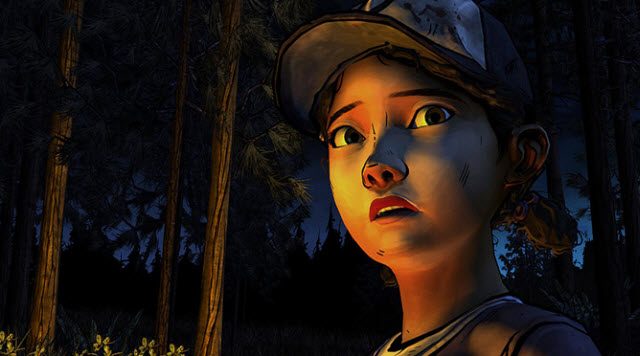
Everyone knows the biggest names in video game development, from Activision to EA to Ubisoft. But there’s one company that’s seen its star rise as of late, securing fantastic licensing deals left and right, and producing some of the highest quality games around.
I’m talking about Telltale Games, who rose to prominence last year with their critically acclaimed and gamer beloved episodic Walking Dead series. While most companies would have turned The Walking Dead into a first person zombie shooter (and some have), Telltale decided to go in a different direction, and focus on the characters instead of just the violence.
The result? A five episode game that unfolded like the comic the show was based on. You grew attached to your character and the little girl he protects, and it was easy to find the game more compelling than the show itself. You weren’t just watching characters make tough decisions on screen, it was up to you to make those tough decisions yourself.
With The Walking Dead, Telltale cemented their status as the premiere “story game” maker in an industry normally obsessed with action and violence. In effect, they’ve helped create a new form of media that blends gaming, books, TV and comics into one interactive experience.
They’re currently releasing episodes of season two of The Walking Dead and the first season of another game, The Wolf Among Us, based on a comic that imagines fairy tales in the modern day world. Their enormous success has allowed them even greater partnerships in the media industry, and they’re making a Borderlands story game with Gearbox, and perhaps most impressively, a Game of Thrones game with HBO’s blessing.
Telltale wasn’t always on top of the world, and they’ve had a long road to get where they are today. The studio was actually founded in 1994 by a collection of former LucasArts employees (the games division no longer exists after the recent Disney acquisition). They started out making episodic games early (after their first title that is, Telltale Texas Hold ‘Em), with games based around the comic Bone and the show CSI. They really kicked the episodic model into gear when they started work on Sam and Max: Season One, the only game series that had reliable monthly installments released for it under their unusual model.
Telltale was one of the best examples of the hugely popular point and click adventure game genre of the ’90s, made famous by games like The Secret of Monkey Island. Their story-based games were ahead of their time, as was their pricing model, and it’s amazing how consistent they’ve been for years. Only now as gaming searches for new price points and revenue streams has their episodic model come back around full circle to be embraced by the public once more.

In recent years, Telltale has continued to grow and land license after license, making deals to develop games in the Back to Future, Jurassic Park and Law & Order universes. Their biggest hit was The Walking Dead however, which sold a million copies in twenty days after its release.
The success of The Walking Dead has allowed even greater expansion for Telltale, as they’ve now grown from 90 employees to 140 in the wake of the game. Their new clout in the industry actually allowed them to approach HBO about securing a license for Game of Thrones, and after seeing the amazing work they’d done with The Walking Dead, the pay channel agreed to terms with them. There’s no word on how exactly the game will fit into the larger universe of A Song of Ice and Fire, but a show mostly about scheming and plotting seems like it will fit in nicely with their dialogue-based portfolio.
Telltale Games has shown that there’s room in the games industry for different types of models. Their titles cost far less than $60, and are released in episodes, rather than lengthy installments every one, two or three years. They avoid typical combat, opting only for rare quick time events in favor of developing the game around characters, not action. It’s taken a long time for them to make their way into the limelight, but now that they’ve arrived, we should expect big things from them. In fact, it would be fantastic if more studios rose up to compete with them, and story-based games became an entirely new genre that attracted attention from more than just a scarce handful of companies.
I highly recommend giving one of Telltale’s games a shot, whether it’s The Wolf Among Us or The Walking Dead. I’ve found that even those who don’t traditionally like video games actually embrace the sort of interactive storytelling they showcase in their games, and you don’t have be “good” at the game in order to see it through to the end. There is no “losing,” you simply choose your paths and make your way through the story.
Expect big things from Telltale as they continue to expand and attract attention from the largest media properties in the industry. There’s nothing to say their 140 person company can’t keep expanding indefinitely as more and more people embrace their unique style of gameplay.
[Photos via Telltale Games]
